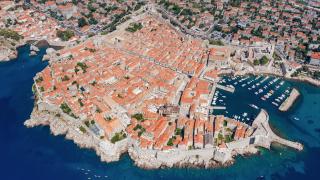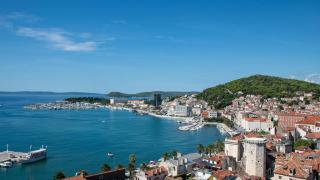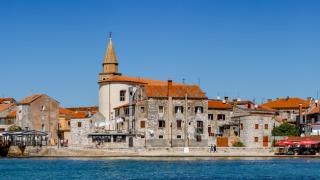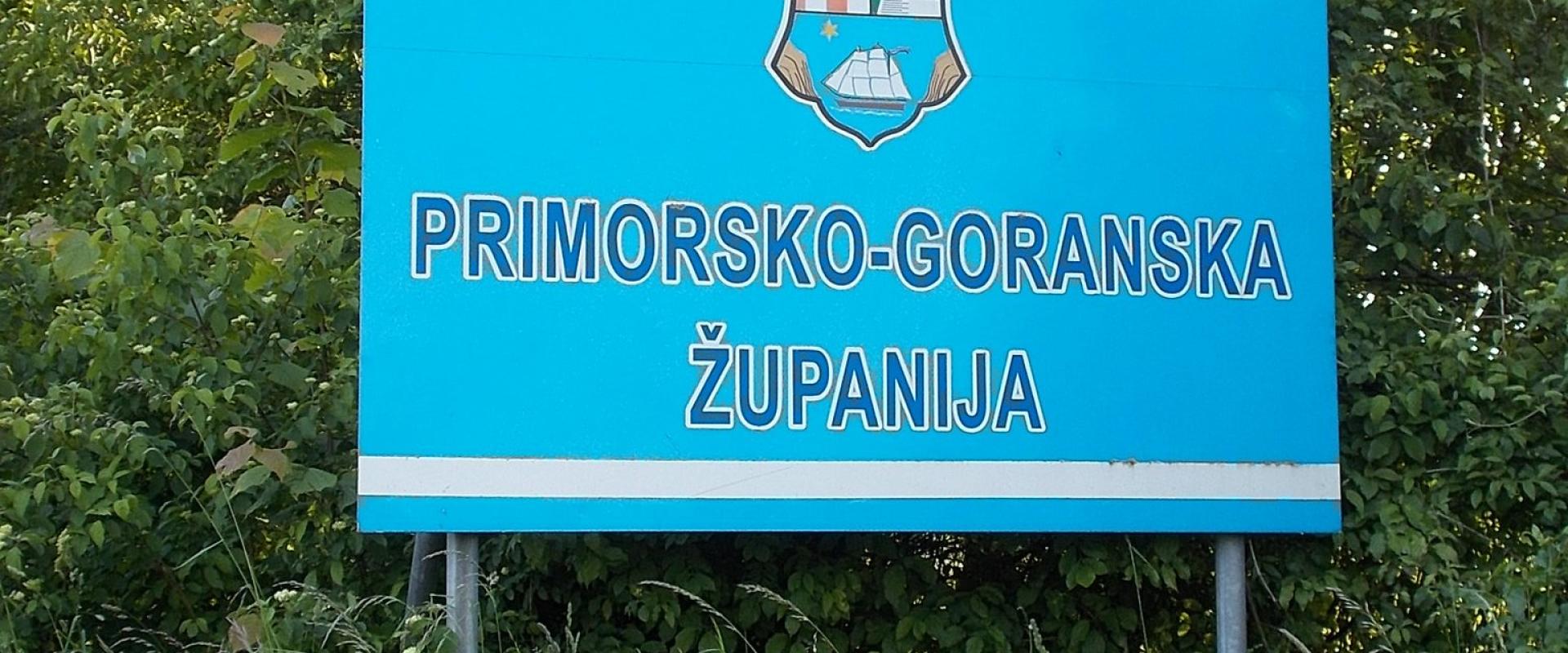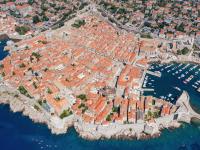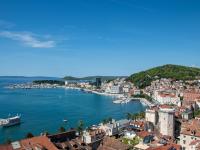Introduction
Croatian is the official language of Croatia, spoken by over 90% of the population. While English proficiency is relatively high at 65%, learning basic Croatian phrases can significantly enhance your travel experience.
Knowing fundamental expressions shows respect for local culture and helps in everyday situations:
- Ordering food and drinks
- Getting directions
- Shopping at markets
- Using public transportation
- Basic greetings and courtesy
Croatian uses the Latin alphabet with some special characters. Most locals appreciate tourists who make an effort to speak their language, even if just basic phrases.
While Croatian isn't widely spoken outside the country, it's part of the Slavic language family. Many words are similar to those in Serbian, Bosnian, and Montenegrin. Learning Croatian basics can help you communicate across several Balkan countries.
Language Overview
Croatian belongs to the South Slavic language family, closely related to Serbian, Bosnian, and Montenegrin. The language uses the Latin alphabet with 30 letters, including unique characters like č, ć, đ, š, and ž.
Key characteristics of Croatian:
- Phonetic writing system - words are spelled exactly as pronounced
- Seven grammatical cases for nouns and adjectives
- Three main dialects: Kajkavian, Čakavian, and Štokavian
- Stress-timed language with pitch accent system
Pronunciation follows consistent rules:
- 'J' sounds like 'y' in 'yes'
- 'C' is pronounced as 'ts' in 'cats'
- 'R' is rolled like in Spanish
- Each vowel has only one sound
Regional variations exist across Croatia's regions:
- Štokavian dialect dominates in Slavonia and Dalmatia
- Kajkavian is prevalent around Zagreb
- Čakavian is common along the Adriatic coast
Standard Croatian maintains mutual intelligibility with Serbian at approximately 95%. Most differences appear in vocabulary and accent patterns.
Essential Phrases
Here are the most important Croatian phrases for travelers:
Basic Greetings
- Dobro jutro - Good morning
- Dobar dan - Good day
- Dobra večer - Good evening
- Doviđenja - Goodbye
- Bok - Hi/Bye (informal)
Essential Words
- Da - Yes
- Ne - No
- Molim - Please
- Hvala - Thank you
- Nema na čemu - You're welcome
- Oprostite - Excuse me
Basic Numbers
- Jedan (1), Dva (2), Tri (3), Četiri (4), Pet (5)
- Deset (10), Dvadeset (20), Sto (100)
Useful Questions
- Gdje je...? - Where is...?
- Koliko košta? - How much?
- Govorite li engleski? - Do you speak English?
Emergency Phrases
- Upomoć! - Help!
- Trebam liječnika - I need a doctor
- Policija - Police
- Hitna pomoć - Emergency
Pronunciation Tips
- 'J' sounds like 'Y' in English
- 'C' is pronounced as 'TS'
- Roll your 'R's slightly
- Stress usually falls on the first syllable
Practical Communication
Restaurant Communication
- Point to menu items while saying "Molim ovo" (I'd like this)
- Ask for the bill with "Račun, molim"
- Confirm prices by stating the number and saying "kuna?"
Transportation Phrases
- "Gdje je...?" (Where is...?) followed by your destination
- "Koliko košta?" (How much?) for checking taxi/bus fares
- Show addresses written down when speaking with drivers
Shopping Interactions
- Use "Imate li...?" (Do you have...?) when seeking specific items
- Numbers 1-10 are essential for quantities and prices
- Learn "Preskupo" (Too expensive) for negotiating at markets
Hotel Communication
- "Rezervacija" (reservation) when checking in
- "Ključ" (key) for room key requests
- "Soba" (room) followed by your room number
Cultural Tips
- Use formal "Vi" instead of informal "ti" with strangers
- Add "hvala" (thank you) after requests
- Speak slowly and clearly when using Croatian phrases
- Most service staff understand basic English in tourist areas
- Keep Google Translate ready as backup for complex conversations
Learning Resources
Popular Language Learning Apps
- Duolingo - Free app with basic Croatian lessons
- Memrise - Features Croatian vocabulary and pronunciation exercises
- Drops - Visual vocabulary builder with 5-minute lessons
Online Learning Platforms
- Croaticum (www.croaticum.com) - University of Zagreb's official Croatian language program
- HR4EU - Free online Croatian course with audio materials
- iTalk Croatian - Video lessons starting at €15/month
Language Schools in Croatia
- Zagreb School of Slavic Languages - Intensive courses from €400/month
- Croaticum Centre - Academic year programs and summer schools
- Split Language School - Private lessons from €25/hour
Free Practice Resources
- HRDict.com - Comprehensive Croatian-English dictionary
- Forvo.com - Native speaker pronunciations of Croatian words
- Easy Croatian YouTube channel - Weekly language lessons
- Lang-8.com - Free writing practice with native speakers
Local Practice Opportunities
- Language exchange meetups in major Croatian cities
- Tandem language partners through university programs
- Croatian conversation clubs at local libraries
Conclusion
Learning basic Croatian phrases demonstrates respect for local culture and enhances travel experiences significantly. Just 10-15 key phrases can help navigate most common situations effectively. Start with essential expressions like hvala (thank you) and molim (please) to build rapport instantly.
Practice pronunciation for 5-10 minutes daily using language apps or audio guides. Focus on mastering greetings and numbers first. Remember that 80% of Croatians are multilingual, but using their language shows cultural appreciation.
Key tips for success:
- Start with simple greetings and courtesy phrases
- Practice numbers 1-10 for shopping and restaurants
- Use hand gestures to supplement basic phrases
- Don't worry about perfect grammar - locals appreciate the effort
Maintain confidence by starting conversations with "Oprostite" (excuse me) and "Govorite li engleski?" (Do you speak English?).
